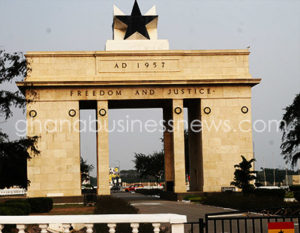Ghana’s peace not absolute – Dr Alidu
 Dr Seidu Alidu, a Senior Lecturer at the Department of Political Science of the University of Ghana, says that even though Ghana is noted as a peaceful country, that does not mean it is enjoying absolute peace.
Dr Seidu Alidu, a Senior Lecturer at the Department of Political Science of the University of Ghana, says that even though Ghana is noted as a peaceful country, that does not mean it is enjoying absolute peace.
He explained that the relative peace in Ghana has the tendency of sliding into chaos if care is not taken.
He warned that no one should think that Ghana could not go to war by taking peace efforts for granted, Dr Alidu said during a “media engagement on the use of peace messages” in Wa.
The National Media Commission (NMC) and the United Nations Development Programme (UNDP) organised the workshop for media practitioners and journalists in the Upper West Region to educate them on the use of peace messages in Election 2016.
He said political parties in Ghana are not formed based on ideas and philosophies but largely on ethnicity or identity, a practice he noted could be dangerous in maintaining peace during violence.
He pointed out that the way political parties select their candidates determines how they mobilize votes.
He said such manner of mobilisation may cause the degeneration of a purely partisan conflict into an ethnic, religious or regional conflict.
Another worrying development Dr Alidu identified was the complete bastardisation of the Electoral Commission (EC) by one part of the political divide.
“Let no one be deceived that everybody in Ghana love peace, this is because some people profit when there is war and so will always want the media to set the war agenda,” he noted.
He appealed to journalists not to allow anybody to belittle their intelligence, adding that they must also be tolerant of people’s views especially when they are critical and constructive.
Dr Alidu urged journalists to develop their knowledge capacity to enable them to effectively educate the public and professionally engage people during discussions.
He said the role of the media is very crucial to the success of the 2016 elections and appealed to journalists and other media practitioners to critically examine whatever content that is being churned out, to ensure that it is public interest.
He said the EC enjoys less space and attention from the media as compared to the political parties, saying this is not helping in the proper education of the electorate who need such information to be able to exercise their voting right.
Source: GNA
